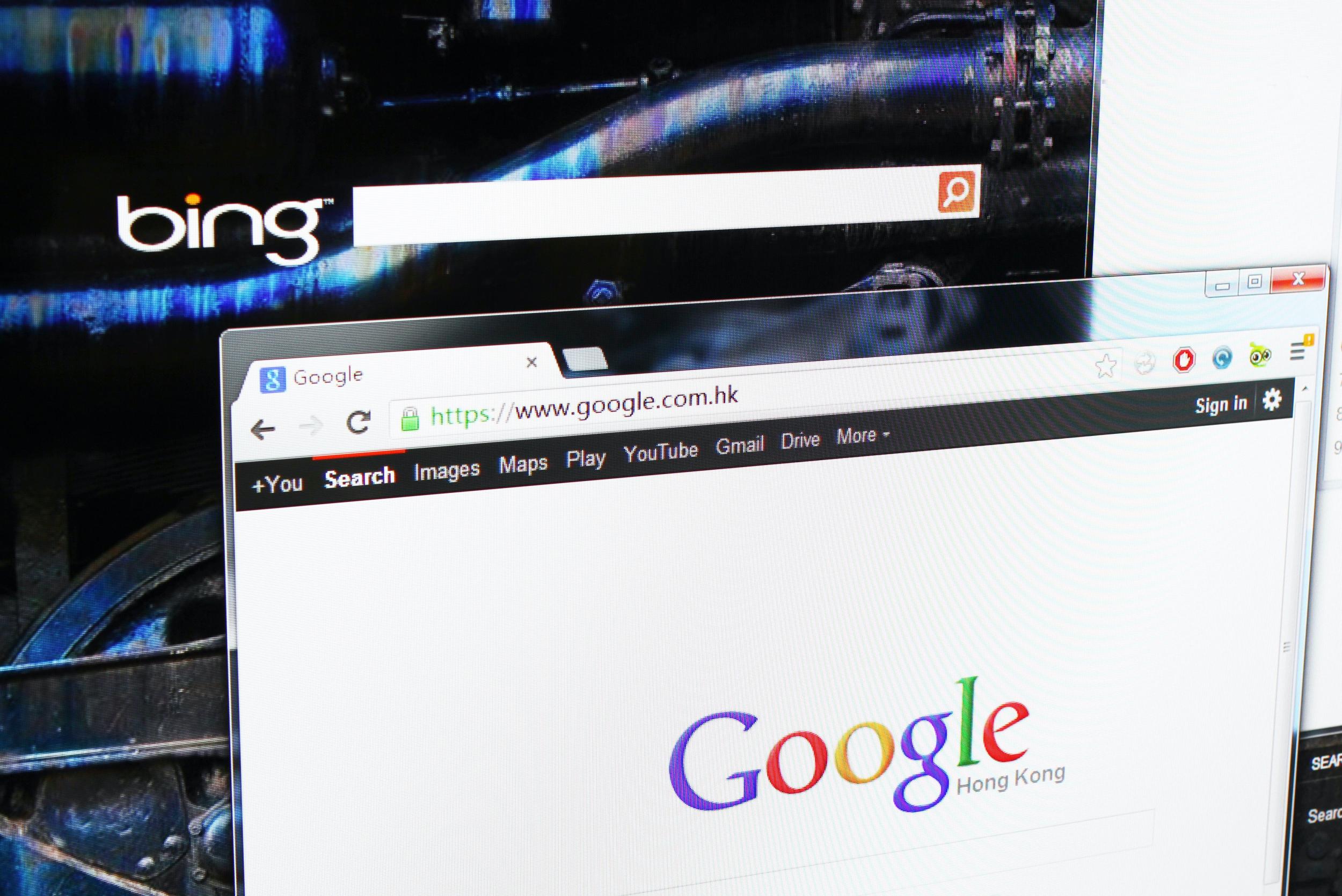Bing’s most popular search word is ‘Google’, says Google
Google revealed the information in an appeal to the EU over a fine regarding claims it monopolised the search market

Google is the most searched for term on Microsoft’s Bing search engine, the company has told judges.
“We have submitted evidence showing that the most common search query on Bing is by far Google,” Alfonso Lamadrid, a lawyer for Google’s parent company Alphabet, told the European Union’s General Court.
Lawyers were making a case to appeal against a $5bn fine levied against it by the EU for anticompetitive ”illegal practices” relating to its Android operating system.
EU competition commissioner Margrethe Vestager said Google had used its clout to ensure Android phones were “locked down in a Google controlled ecosystem” and that the company paying manufacturers and operators to keep competing search engines off Android phones “obstructed the development of competing mobile operating systems which could have provided a platform for rival search engines to gain traffic”.
Google’s lawyer pushed back against such claims: "People use Google because they choose to, not because they are forced to”, Lamadrid said, as reported by Bloomberg.
"Google’s market share in general search is consistent with consumer surveys showing that 95% of users prefer Google to rival search engines."
According to data from SEO company Ahrefs, Google is indeed the top global search for Bing users. In the United States specifically, it is the third top search – beaten by “Facebook” and “YouTube”. Neither Microsoft nor Google responded to The Independent’s request for comment asking to verify this information before time of publication.
The European Union has made numerous attempts to try and regulate a fairer market for search engine choice. In 2020 it made Google implement an auction on Android for other companies to pay to be a more visible option for the default search engine.
However, the move was criticised by privacy-focused search engineDuckDuckGo who described it as ‘pay-to-play’ and incentivising profits over privacy.
Subscribe to Independent Premium to bookmark this article
Want to bookmark your favourite articles and stories to read or reference later? Start your Independent Premium subscription today.

Join our commenting forum
Join thought-provoking conversations, follow other Independent readers and see their replies